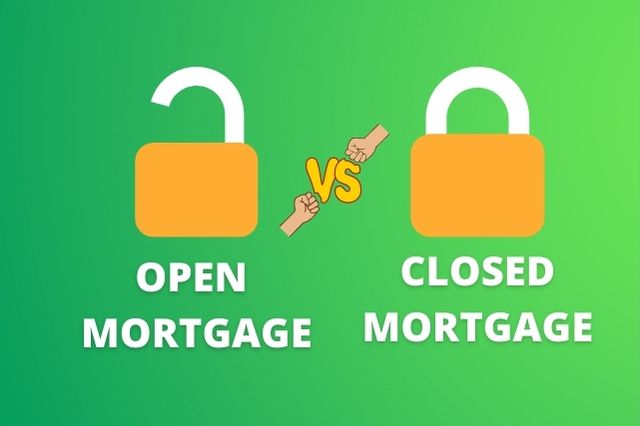There are numerous factors you need to consider before buying a home, especially if it’s your first. Below are some of the most important financial aspects of buying a home, starting with finding experts you can trust to advise you on one of the biggest purchases of your life so far.
Partner With the Right Real Estate Experts

Is now a good time to buy? Is this the right home and the right neighborhood to invest our/my life savings in? With so much at stake, you need to feel confident that you are making the right decision. This means hiring professionals with experience that have seen it all before, who successfully study the market and can provide you with dozens of references from happy clients and who, most importantly, you can trust.
As the real estate lawyers at Axesslaw.com will tell you, this can be the most important decision you make as you rely on these experts to educate you on what you don’t know and help you make an informed decision that best fits your circumstances.
Before hiring a real estate agent, real estate lawyer, contractor, etc., ask trusted friends and family for referrals, speak to several before making a decision and look for professionals that do not shy away from telling you the risks or cons involved in your potential decisions.
Look Into Government Incentives for First-Time Home Buyers

If you’ve never owned your own home or lived in one owned by your current spouse or common-law partner in the last four years, you may be eligible for the Home Buyers’ Plan (HBP) and/or the First-Time Home Buyer Incentive (HBI). Some of the incentives include:
● The ability to transfer money from your RRSP to use towards a downpayment on your first home.
● A reduction of your monthly mortgage payments.
● Tax credits.
Many of the incentives require you to repay them, so make sure you understand all the terms and conditions and rely on your real estate professionals to explain how they can affect you down the road.
Get Pre-Approved for a Mortgage
Yes, mortgage rates have recently increased while home sales and home prices have dropped considerably. But despite rising interest rates, Ontarians are still applying for mortgages and purchasing homes. The key is to shop around.
The minimum down payment in Canada is 5% for a home up to $500,000; however, some mortgage lenders may require more. When the purchase price is over $500,000, the minimum down payment is 5% on the first $500,000 and 10% for the remainder of the purchase price.
If the money you’ve put away for a downpayment on a home is less than 20% of the purchase price, you’ll likely have to apply for a “high-ratio” mortgage. This doesn’t necessarily mean a higher interest rate; it does mena, however, that you might be required to carry mortgage insurance. This reduces the risk to the lender and allows them to reduce the interest rate.
Aside from the house and neighbourhood you choose to move into, choosing a mortgage is the biggest financial decision you will make in the home-buying process. You can’t spend enough time saving up for a down payment or shopping around for the right mortgage – unless interest rates continue rising. Check when the Bank of Canada plans to raise interest rates and rely on your real estate experts to explain to you the potential consequences of locking into a mortgage when you are ready to buy.
You will also have to do some research and learn all you can about mortgages to recognize the ones with hidden fees, bait-and-switch rates and terms that don’t align with your financial goals, like a closed mortgage, for example.
A pre-approved mortgage gives you and your agent a price range to work with, a hard-capped budget, and it gives sellers peace of mind that your offer is unlikely to fall through at the last minute.
Don’t Change Your Credit Score After Getting Pre-Approved for a Mortage
Using your credit to make major purchases can affect your credit score, which can, in turn, affect your pre-approval. Hold off on making large credit purchases until the sale is final.
Interest Rates
Homeowners are understandably concerned as their mortgage payments are suddenly increasing. Mortgage Interest rates can either be:
● Fixed at a certain rate for the term of your mortgage. This can mean a higher rate than a variable interest rate, but it may be the right choice if you feel that interest rates will continue increasing or if you prefer the peace of mind that your payments will remain the same for the duration of your mortgage term.
● Variable interest rates can be lower than fixed rates but are not stable and can fluctuate over the term of the mortgage based on the prime lending rate. If you feel that interest rates will continue to drop, this may be the option for you. With a variable interest rate, you can also choose whether your payments are fixed at a certain amount or adjustable.
o Fixed payments with a variable interest rate mean that if interest rates increase, more of your payment will go towards paying interest and if the rates decrease, more of your payment will be applied to the principal.
o Adjustable payments with a variable interest rate increase or decrease with the interest rate. This is because you’ve ‘locked in’ how much of the principal you want to pay down during the term of the mortgage, causing your payments to fluctuate to accommodate the current interest rate.
Open Mortgages, Closed Mortgages

Mortgages can either be open or closed. Open types give you the option to make extra payments towards the mortgage on top of your regular payments. These are called prepayments. Open mortgages also allow you to pay off the mortgage completely, renegotiate the mortgage and change lenders before the end of the mortgage term, without penalty.
An open mortgage is ideal for borrowers who want the freedom to make lump-sum prepayments when they get the chance, are thinking of moving before the end of the mortgage term or want to pay it off before the end of the term.
Closed ones generally have lower interest rates, but they cap the number of prepayments you can make towards your mortgage. A closed one may be what you’re looking for if you plan on staying in your home for at least the duration of the mortgage term and don’t anticipate making many prepayments.
Other Mortgage Option Considerations
Other mortgage options can affect how much you ultimately pay for your home and how long your payments will last.
They include:
● Payment frequency.
● Mortgage terms and amortization.
● Fees.
● Mortgage deferrals.
● Mortgage insurance.
● Renewing your mortgage.
For further information on these options and how they can affect your mortgage, check out the Government of Canada’s page.









